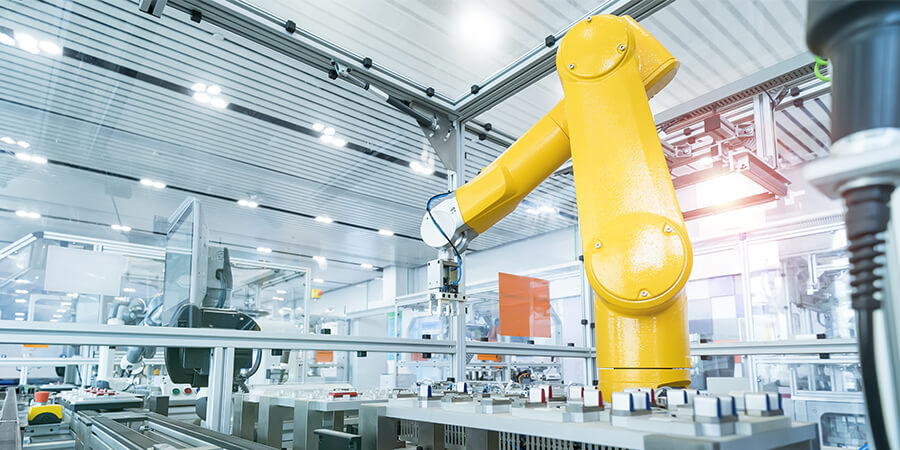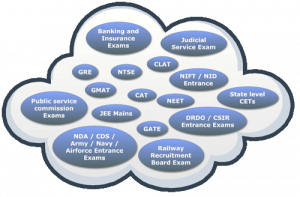Best Books to Read in 2023
Best Books to Read in 2023 Are you a bookworm or a bibliophile, if yes, then this is the ...
The job market is undergoing a substantial transition in the era of Industry 4.0 when smart manufacturing and automation have become integrated into industrial processes. As old professions change and new technologies emerge, individuals are faced with a myriad of career opportunities after smart manufacturing and automation. The article goes into the various options available for Career Options after Smart Manufacturing and Automation to professionals in this dynamic area, focusing on the abilities required to remain current and flourish in the ever-changing world. You also read about the Top 10 career options after Btech mechanical engineering

Smart manufacturing relies primarily on industrial robots to streamline production processes. Industrial robotics engineers design, program, and maintain these robots to ensure maximum efficiency and reliability. As firms adopt automation, the demand for competent robotics engineers grows. First on the list for the Career Options after Smart Manufacturing and Automation comes the Industrial Robotics Engineer.
Secondly, we have added Data Scientist or Analyst to the list of Career Options after Smart Manufacturing and Automation. With the integration of sensors and IoT devices in smart manufacturing, massive volumes of data are produced. Data scientists and analysts are critical in deriving valuable insights from this data, allowing businesses to make more informed decisions, optimize processes, and increase overall efficiency.
The third option comes for the Career Options after Smart Manufacturing and Automation in the list is Automation System Architect. Professionals in this field create and implement extensive automation systems. They combine a variety of technologies, including PLCs (Programmable Logic Controllers) and SCADA (Supervisory Control and Data Acquisition) systems, to create smooth and efficient automated production processes.
Because smart manufacturing relies largely on networked systems, the demand for cybersecurity experts has never been higher. These specialists protect manufacturing processes from cyber threats while guaranteeing the integrity and security of sensitive data and production systems.
Artificial intelligence (AI) and machine learning are rapidly being used in smart manufacturing to improve predictive maintenance, quality control, and process efficiency. Engineers who specialize in AI and machine learning create algorithms and models that improve manufacturing efficiency and decision-making. Also, find here the Top 20 Career Options after Engineering

Professionals in this area offer strategic advice to businesses migrating to smart manufacturing. They evaluate current processes, recommend appropriate technology, and aid with the implementation of smart solutions, allowing organizations to maximize the benefits of automation. You can also find the Smart Manufacturing Consultant in the list of the Career Options after Smart Manufacturing and Automation.
The Internet of Things (IoT) is at the heart of smart manufacturing, connecting devices and systems to enable real-time monitoring and control. IoT professionals create, deploy, and maintain these interconnected networks, allowing for seamless communication between devices and data-driven decision-making.
Smart manufacturing has a significant effect on supply chain dynamics. In this context, supply chain analysts guarantee that resources and goods move efficiently through automated procedures, hence optimizing inventory management and minimizing lead times.
Maintaining product quality is critical in smart manufacturing. Quality assurance engineers create and implement testing processes for automated systems to ensure that they meet stringent quality requirements.
Smart production relies on advanced equipment, thus maintenance experts who specialize in automated systems are essential. They troubleshoot, repair, and perform preventative maintenance on robotic and automated equipment to save downtime and ensure smooth operation. The last in the list of Career Options after Smart Manufacturing and Automation comes under Maintenance Technician for Automated Systems. If you are interested in knowing options for the other engineering streams, you can read here about the Top Courses After 12th in All Streams

The Career Options after Smart Manufacturing and Automation are diverse and exciting, reflecting the rapid growth of technology. As sectors continue to embrace automation, workers with the necessary abilities will have numerous opportunities to prosper in this changing world. Whether you’re an engineer, data scientist, consultant, or cybersecurity or IoT expert, staying up to date on the newest advances and constantly updating your skill set is essential for a successful and happy career in the age of Industry 4.0. The future of work is here, and it’s full of exciting opportunities for those who are willing to grab them.
Vani Jha is a creative content writer with over 2 years of experience in producing engaging, informative, and well-researched... (Full bio)

Best Books to Read in 2023 Are you a bookworm or a bibliophile, if yes, then this is the ...

In the exhilarating journey of 10 Proven Memorize Techniques for Students learning, memory is your trusty companion. Whether ...

Top 20 toughest exams in world is about exams in the world that required very hard work to ...

Top 20 toughest exams in India - Exams are the perhaps most toughest moments for any student. A ...

Top 20 Colleges of DU Getting admissions to the top 20 colleges of DU is a dream for every ...

Top 20 NITs of India - Amongst the 31 NITs in India, today, we are talking ...

Here are the Top 12 Artificial Intelligence in Mumbai. Artificial intelligence (AI) refers to the simulation of human ...

As you stand on the Best Science Courses after 12th academic journey, the realm of science beckons, offering ...
Millions of students have entrusted CollegeChalo to facilitate their seamless and smooth admission process to their dream colleges and universities. With CollegeChalo, you can gain a competitive edge by easily accessing exam and course details to stay ahead of the admission journey. What are you waiting for?
Search your dream college